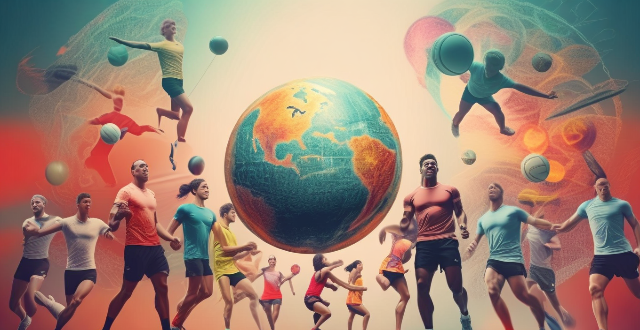The globalization of sports has led to increased opportunities for athletes from different backgrounds and cultures, but also poses challenges to social equality and inclusion. Efforts are needed to address these challenges and promote fairness, inclusivity, and respect for all athletes.

The Impact of Globalization on Sports and Social Equality
Globalization has had a significant impact on the world of sports, with increased international competition and collaboration between countries. This has led to greater opportunities for athletes from different backgrounds and cultures to compete at the highest level. However, the extent to which this contributes to social equality and inclusion is complex and multifaceted.
Increased Opportunities for Athletes
One positive aspect of the globalization of sports is that it provides more opportunities for athletes from diverse backgrounds to participate in competitive events. This can lead to increased representation and visibility for underrepresented groups in sports, as well as greater access to resources and training facilities.
* More international competitions mean more chances for athletes from different countries to showcase their skills.
* Collaboration between countries can lead to shared resources and knowledge, benefiting athletes worldwide.
* Greater investment in sports infrastructure in developing countries can create more opportunities for local athletes.
Challenges to Social Equality and Inclusion
Despite these positive aspects, there are also challenges associated with the globalization of sports that can hinder progress towards social equality and inclusion. These include issues such as unequal distribution of resources, cultural barriers, and commercialization of sports.
* Unequal distribution of resources can lead to disparities in training facilities, coaching, and funding between countries and regions.
* Cultural barriers may prevent some athletes from fully participating in international competitions or feeling welcome in certain sports communities.
* The commercialization of sports can prioritize profit over fairness and inclusivity, leading to exclusionary practices like ticket pricing or sponsorship deals that favor certain groups over others.
Addressing the Challenges
To fully realize the potential benefits of the globalization of sports for social equality and inclusion, it is important to address these challenges through targeted efforts and policies. Some possible approaches include:
* Investing in grassroots sports programs to provide equal access to resources and opportunities for all athletes.
* Promoting cultural exchange and understanding within the sports community to break down barriers and foster inclusivity.
* Encouraging fair competition by implementing anti-discrimination policies and ensuring equitable treatment for all participants.
* Supporting initiatives that promote diversity and inclusion within sports organizations and governing bodies.
In conclusion, while the globalization of sports has brought about many positive changes, including increased opportunities for athletes from diverse backgrounds, there are still significant challenges to be addressed if we truly want to achieve social equality and inclusion through sports. By working together to promote fairness, inclusivity, and respect for all athletes, we can help ensure that the benefits of globalization are felt by everyone involved in the world of sports.